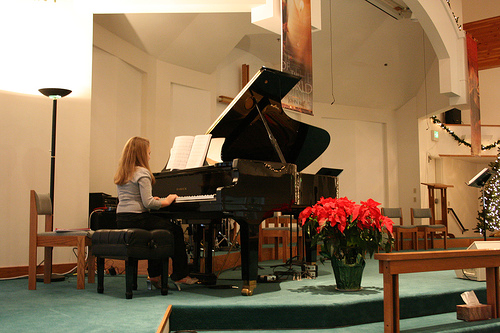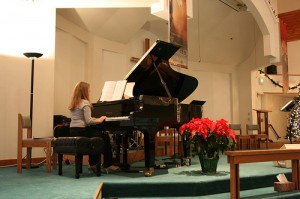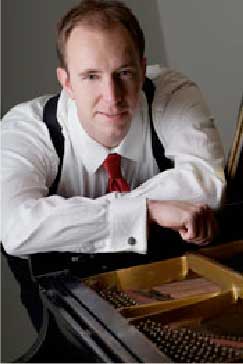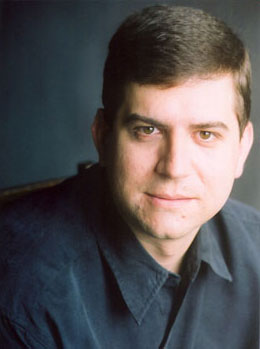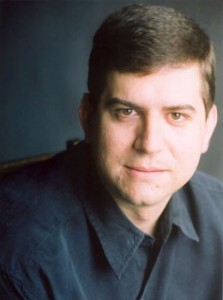After attending the mass Keynote Address, I headed to the sessions for the pre-conference track called, “Students and Young Professionals.” It began with a panel discussion moderated by Martha Hilley.
Developing from Student to Professional: A Practical Overview, moderated by Martha Hilley.
The were 4 contributors, who each spoke on a topic.
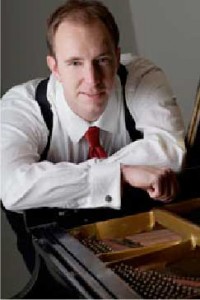 1. Practical Networking: I know why, when, and where — now tell me how, by Courtney Crappell.
1. Practical Networking: I know why, when, and where — now tell me how, by Courtney Crappell.
Dr. Crappell discussed practical networking. The key to successful networking is to be genuinely interested in other people! We sometimes tend to be self-centered, especially in places with new people like conferences.
Another key to successful networking is in the preparation. This requires some thought in advance: how do you want to market yourself? Create an elevator pitch that talkes about your goal as a piano teacher. It should be something short but intriguing that could start a conversation. An elevator speech contains a problem, solution, and a personal role.
Presentation is also important, but perhaps even more so is the follow-through. Make sure you have business cards with you at all times so you can easily exchange information with others. As you meet new people, you can even write things on their business cards afterwards to help you remember who’s who. And send people an email after you meet them. You never know what kind of opportunities may arise in the future just from having some connections with other people. Networking is important! Continue reading “NCKP 2011 | (2) Developing from Student to Professional (Panel Discussion)” →
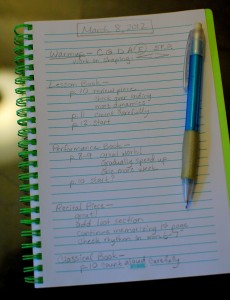 Last Thursday, we started a Forum Q&A discussion about assignment notebooks/pages for students. Today, I thought I’d share my own method of tracking assignments — and, of course, also announce the winner of the giveaway!
Last Thursday, we started a Forum Q&A discussion about assignment notebooks/pages for students. Today, I thought I’d share my own method of tracking assignments — and, of course, also announce the winner of the giveaway!

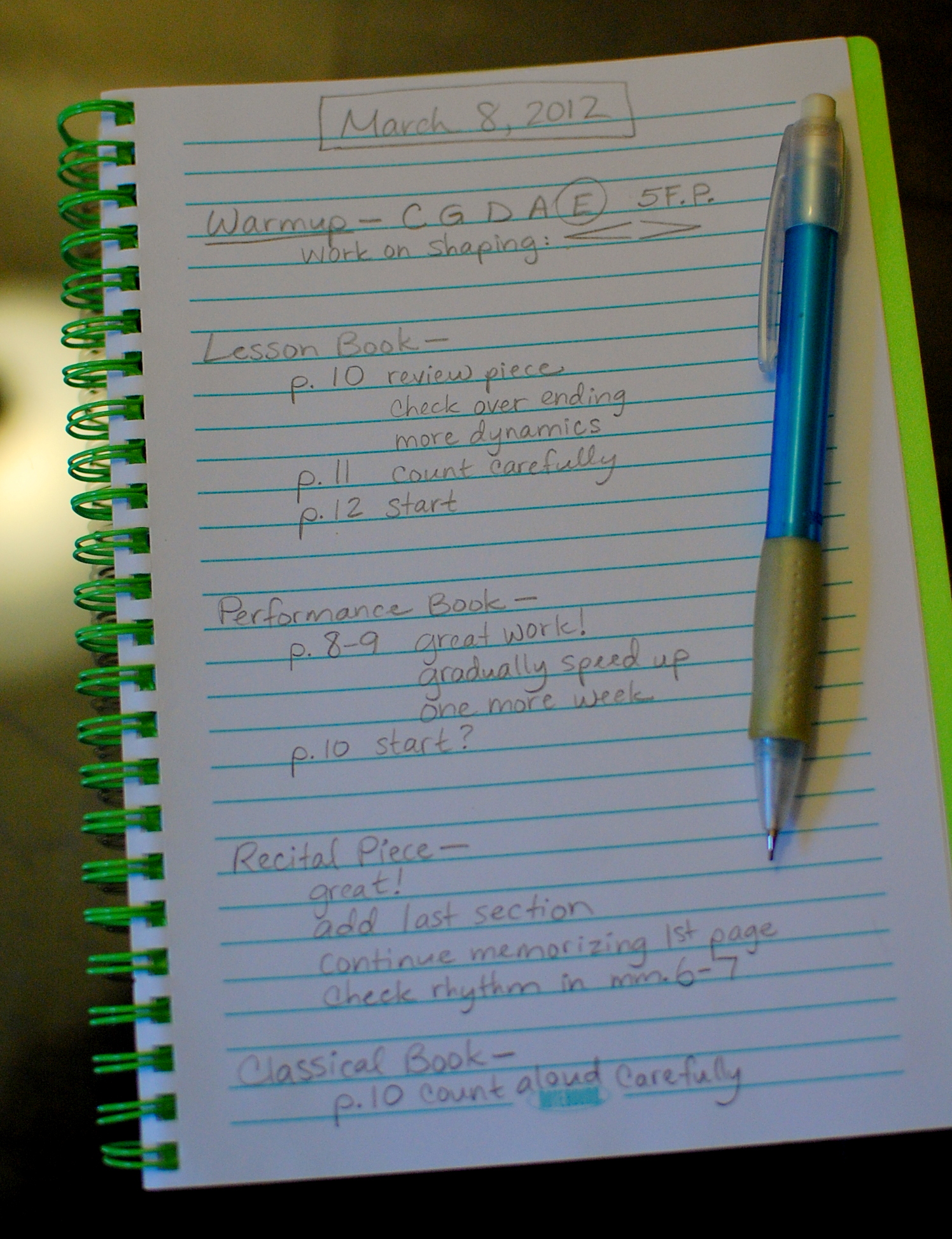

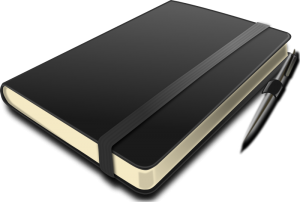 Today’s post brings a new Forum Q&A topic, and another GIVEAWAY!
Today’s post brings a new Forum Q&A topic, and another GIVEAWAY!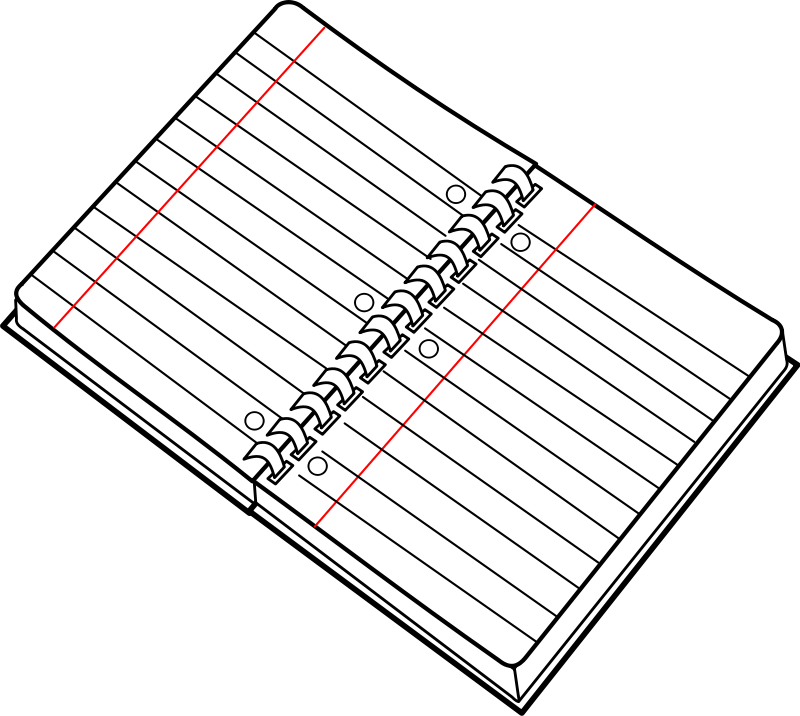
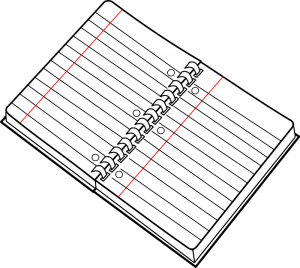

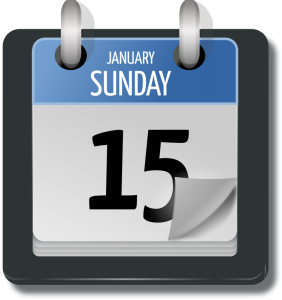


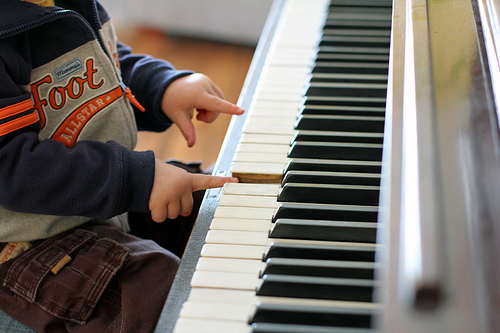
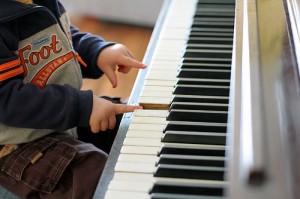
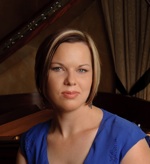 The next session at the OhioMTA Conference was given by Dr. Nicole Biggs, the new piano professor at Bowling Green State University in my town:
The next session at the OhioMTA Conference was given by Dr. Nicole Biggs, the new piano professor at Bowling Green State University in my town:
 Wow, last week’s Forum Q&A received some great responses about advertising! Thank you, and be sure to read what everyone had to say by
Wow, last week’s Forum Q&A received some great responses about advertising! Thank you, and be sure to read what everyone had to say by 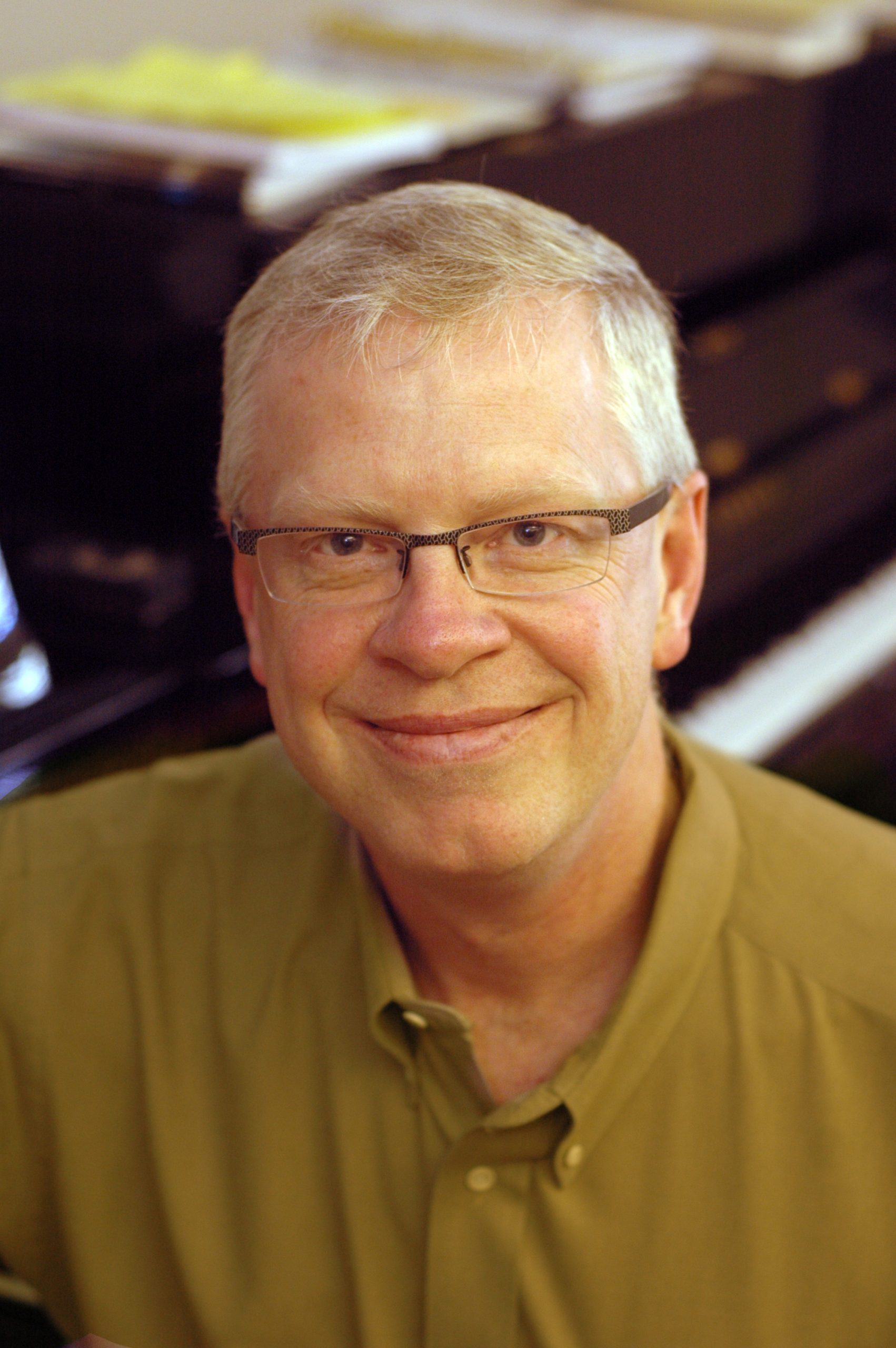
 Yesterday, I attend a Teacher Information Session for
Yesterday, I attend a Teacher Information Session for 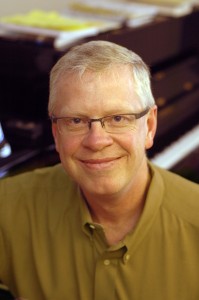 Dr. Andrew Hisey was our presentor. He began the workshop by giving a brief look at the history of TAP and how this collaboration came about. Then he talked about the goal of TAP: to connect people coast-to-coast with a common language and share the celebration of accomplishments. TAP can help people (non-musical or not) recognize certain levels of achievement that our students have reached. TAP in this way can also help unite independent music teachers across the nation.
Dr. Andrew Hisey was our presentor. He began the workshop by giving a brief look at the history of TAP and how this collaboration came about. Then he talked about the goal of TAP: to connect people coast-to-coast with a common language and share the celebration of accomplishments. TAP can help people (non-musical or not) recognize certain levels of achievement that our students have reached. TAP in this way can also help unite independent music teachers across the nation.